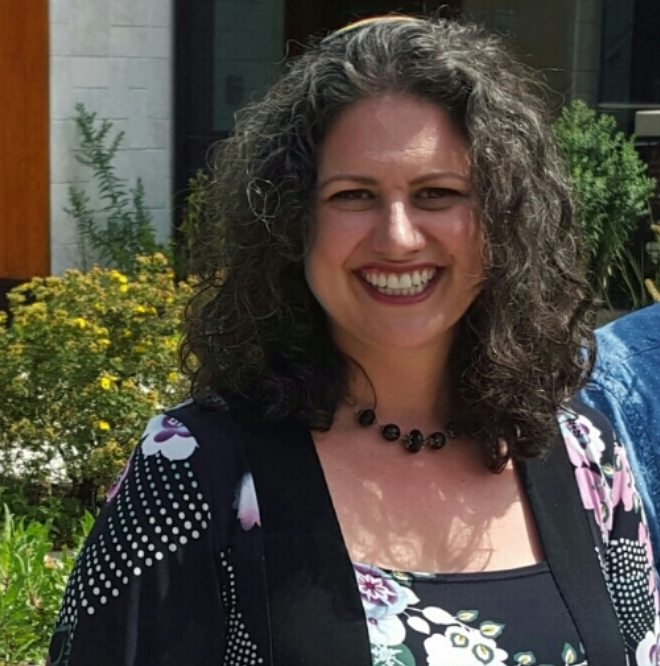[Taken from a conversation on the Hashivenu podcast, “Reconstructionist Values, Covenantal Community and War in the Middle East” Dec. 4, 2024.]
Rabbi Deborah Waxman: When you teach about brit — when you talk about covenant in the community, on Shabbat or at other settings or at the ceremony of brit — what is it that you raise up? What is some of the most important Torah that you teach when you’re talking about covenant?
Rabbi Rachel Weiss: At JRC [Jewish Reconstructionist Congregation in Evanston, Ill.], one of the things that we do that I think is really special is whenever we have a b’nai mitzvah ritual, after the third aliyah, which in our community is when the teen is called to the Torah as a Jewish adult for the first time, the fourth aliyah is for all adult members of JRC, which for the first time includes this teen.
So the very first mitzvah in which the now-adult teen participates is to be called to the Torah with their adult Jewish community. And in our blessing to the community after the aliyah, I have the teen look around as I say, “Some people you know in this group because they’ve been part of your life for as long as you can remember, like your family members or your classmates or your classmates’ parents, and some people you may have never seen before today.”
And then I teach that the really essential mitzvah in our community is showing up, being present. And that sometimes you show up for people that you know and you love, and sometimes you show up for people that you don’t know and you’ve never met before.
A covenantal community is not a dinner party or a gathering of your best friends. It is a community that is obligated to show up for one another because you can’t be Jewish alone, and we need each other. And so when we’re celebrating, when we’re mourning, when we’re struggling, we need each other. We try to model this every Shabbat morning. And we model this in all different kinds of ways.
So for me, I think this idea of covenantal community is about crafting a space where people feel like they belong — whether or not they even know somebody intimately well — but knowing that there are people who are obligated one to the other based on common values and who are committed to actually putting those values into action with their body, with their presence, with their soul and showing up. And that is something that we try to raise up throughout everything that we do.
In a covenantal community, members are obligated to show up for one another because you can’t be Jewish alone, and we need each other.
Rabbi Deborah Waxman: Oh, Rachel, I love that so much. Relationship is at the center of covenant, but throughout so much of in the Torah and other treatments, it’s a very hierarchical, it’s a very vertical relationship. And part of what, in a very Reconstructionist way, we’re talking about is that this horizontal relationship, and the covenant that we’re bound up in each other, is binding across time. It’s binding across challenge. And I think that this idea of asking, inviting, even commanding, however we reconstruct that term, the people to develop a sense of commitment and obligation to other people, which sometimes means submerging our individual interests in the service of something larger. It’s so beautiful.
Rabbi Rachel Weiss: It is beautiful to observe who comes up for this aliyah each Shabbat. Not only does the community grow by one more 13 on the bimah. In addition, different people come forward each week. Some people are invited guests and are dressed up. Some people went to meditation and are still in their yoga pants. Some people are sitting in the room because they’re checking it out and they didn’t realize that they were going to be called up to the bimah. And I say, “You. No, you out there. I know you; you come up to the bimah.” And people are surprised. And it’s this really loving way of people looking around and saying, “Yeah, we’re all here for each other.” It’s a very tangible reminder of how we show up, especially because so many of us have had experiences in congregations, or in our Jewish lives or our secular lives, of feeling so deeply alone. And to actually model this is a place where that doesn’t have to happen is very, very powerful.







